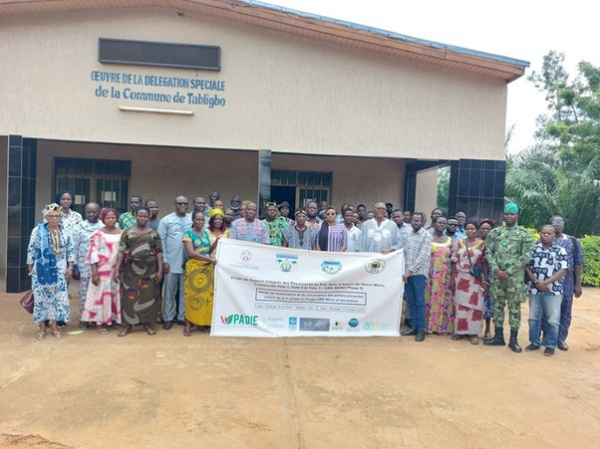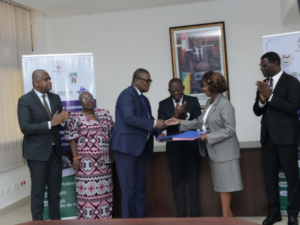Togo has taken another major stride in sustainable development with the launch of the second phase of the Mono Basin Project in Yoto Prefecture, southern Togo. The initiative, officially inaugurated on Friday, October 10, 2025, marks a renewed commitment to strengthening water governance, promoting climate resilience, and advancing sustainable agriculture for local communities.
Valued at 143.39 million CFA francs, the two-year project will span from April 2025 to March 2027 and is designed to benefit approximately 50,000 residents across the Yoto I, II, and III communes. This new phase represents more than an infrastructural effort — it is a transformative step toward environmental sustainability and community empowerment. The Mono Basin Project continues to serve as a blueprint for how local action can drive national progress in water management and rural development.
During the launch, local authorities reaffirmed their dedication to ensuring that this phase delivers tangible benefits to every participating community. They emphasized that effective water resource management remains central to sustainable development, especially in regions where agriculture and daily life depend heavily on water availability. By focusing on resilience, efficiency, and inclusion, the Mono Basin Project aims to build stronger systems capable of supporting livelihoods in the face of climate challenges.
This second phase builds on the remarkable achievements of the first, which ran from 2019 to 2022. The earlier stage focused primarily on establishing water infrastructure and creating community-based management structures that ensured local ownership of water resources. These foundational efforts have already improved water access and strengthened institutional frameworks. Now, GIRE-Mono II will deepen those gains by integrating innovative agricultural practices, supporting capacity development, and fostering greater collaboration between local authorities and community stakeholders.
Moreover, the project underscores Togo’s continued leadership in implementing the principles of Integrated Water Resources Management (IWRM). Through this approach, water use, conservation, and agricultural productivity are harmonized to promote environmental sustainability and equitable resource distribution. Authorities noted that the Mono Basin Project aligns with national objectives under Togo’s 2025 Development Roadmap, which prioritizes rural resilience, inclusive growth, and sustainable infrastructure development.
In addition, the initiative carries significant implications for food security and climate adaptation. By empowering farmers with improved irrigation systems and sustainable farming techniques, the project will enhance productivity and stabilize income across rural communities. It will also help mitigate the effects of erratic rainfall and extreme weather conditions that threaten agricultural output in the region.
Local leaders praised the project’s inclusive design, highlighting that women and youth — who play vital roles in community agriculture and water management — will be central beneficiaries. This focus on equity ensures that development outcomes reach those most affected by climate variability and resource scarcity.
Furthermore, the Mono Basin Project encourages cooperation across various levels of governance. From local councils to regional authorities and national ministries, the initiative promotes joint decision-making, transparency, and accountability in managing shared water resources. Such collaboration strengthens institutional capacity and ensures that project outcomes remain sustainable beyond its implementation period.
As the second phase moves forward, optimism runs high in Yoto Prefecture. Residents and local authorities share a common vision — one where clean water, resilient agriculture, and environmental stewardship form the foundation for a prosperous future. The Mono Basin Project stands as proof that targeted investments and coordinated planning can transform communities, improve livelihoods, and protect natural ecosystems for generations to come.
Through this renewed effort, Togo is demonstrating that sustainable water management is not only possible but essential for achieving long-term national resilience and rural prosperity.





